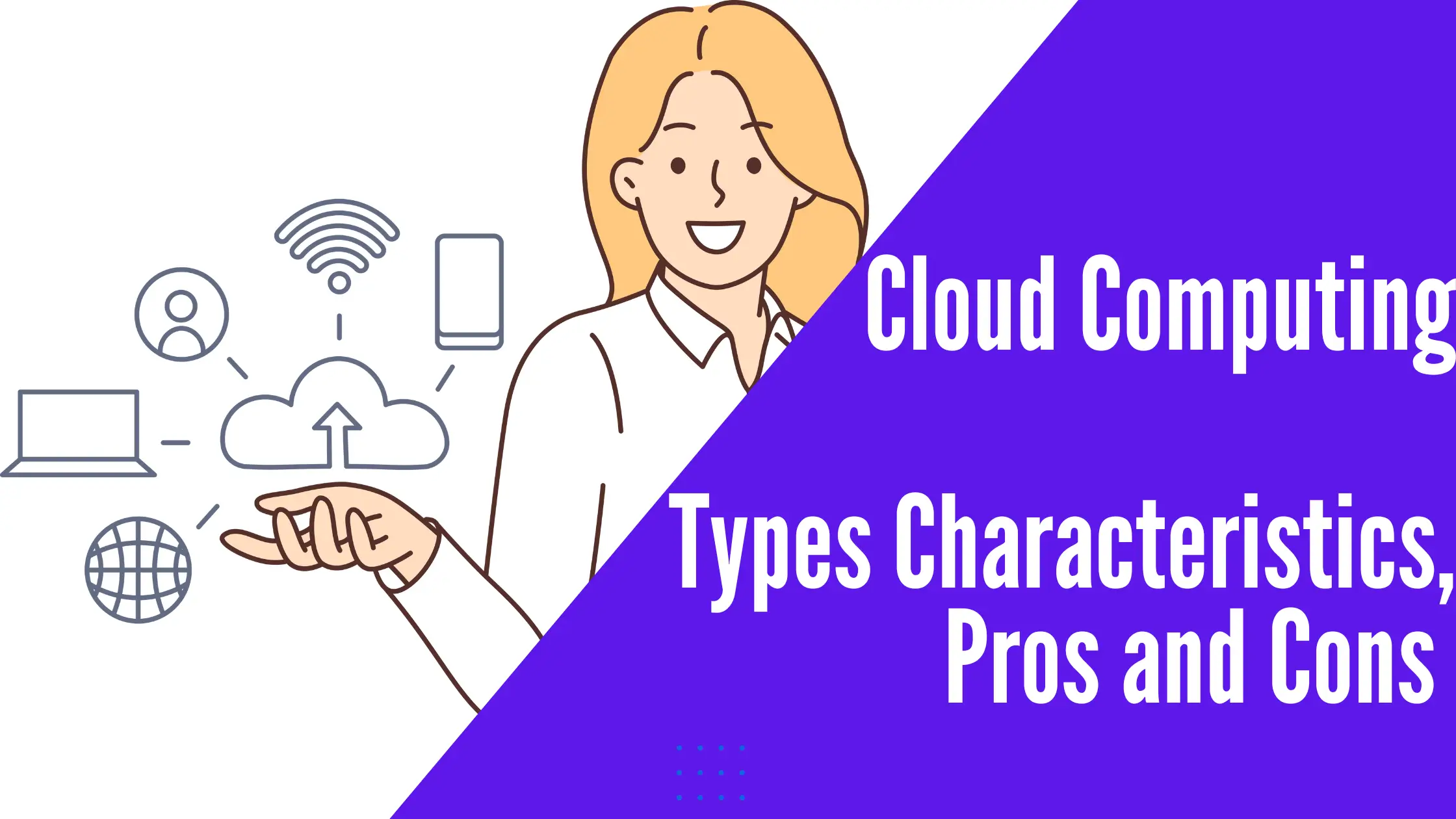Last updated on July 22nd, 2025 at 05:47 pm

In this changing landscape of digital technology, understanding what is cloud computing is essential for navigating the way we store, access, and manage data. Of course, this also has implications for how we protect our data.
Keep reading to learn:
- The definition of cloud computing;
- Characteristics of cloud computing;
- Types of cloud computing;
- Advantages of cloud computing; and
- Security issues associated with cloud computing.
What is cloud computing?
Cloud computing refers to the use of various IT resources across the Internet. This allows businesses to easily access resources that meet their changing needs and allows them to work collaboratively.
It also allows them to save money by negating the need for expensive hardware and maintenance.
Since information on the internet is accessible worldwide, security is a critical aspect that needs to be considered.
Characteristics of cloud computing
Several key characteristics distinguish cloud computing from traditional computing. The following is a list of key traits that you can expect from cloud computing:
- Broad Network Access is available over the network through a basic mechanism that supports usage via diverse client platforms.
- Merging computing resources will serve multiple consumers via a multi-tenant model.
- Multi-tenancy is when more than one individual shares the same residence or application
- Measured service is used by cloud systems to optimize and control the use of resources.
- Automation deploys and manages the resources, thereby reducing the need for manual intervention.
Types of cloud computing
Cloud computing comes in three basic types. These are:
- Software as a Service (SaaS);
- Platform as a Service (PaaS); and
- Infrastructure as a Service (IaaS).
Six advantages of cloud computing
There are many benefits of cloud computing that have caused its sudden surge in popularity. Six advantages of cloud computing are:
- Cloud storage can recover data after a disaster and proves to be very reliable, thereby saving businesses from having long periods of downtime.
- Businesses reduces expenses by leveraging the vast resources of cloud providers more than they could do on their own, otherwise known as Massive Economies of Scale.
- Cloud service provide speed and agility that people requires when it comes to opening a file or application
- Cloud storage is very flexible when it comes to the different types of technology it can support.
- Depending on the demand business operations can be scaled up or down. This ensures that they only pay for what they need.
- With cloud storage, there is no need for investments in software or hardware as it offers pay-as-you-go pricing, which reduces the cost by a large margin.
Overall, cloud computing enhances efficiency and agility, giving businesses a competitive edge.
Cloud computing security issues
Cloud computing offers many benefits, from scalability to flexibility and cost efficiency, but with all of its advantages, it also comes with its disadvantages, which are:
- Security risks are associated with storing sensitive data on the internet.
- Data breaches or losses are definite concerns when using cloud computing services.
- Ensuring data security and privacy is extremely important when using cloud storage solutions to manage business needs.
These are just some of the security issues associated with cloud computing. These considerations are crucial when utilizing online computing resources.
 Skip to content
Skip to content 